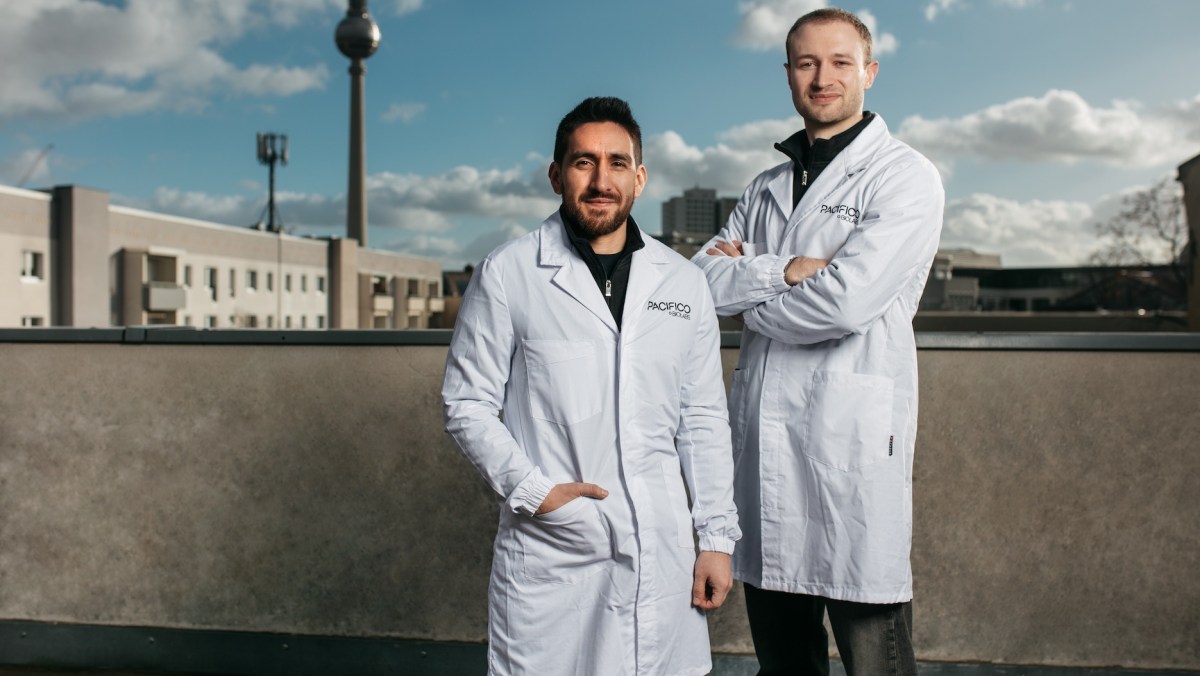
In the quest to replace traditional seafood with alternatives, Berlin-based Pacifico Biolabs believes it has a unique approach to making whole muscle structures using fermentation.
While fermentation, the process of growing cells in bioreactors, is already used to make a number of alternative proteins, like cultivated meat, Zac Austin, co-founder and CEO, calls the process “a complete game-changer.”
Prior to Pacifico Biolabs, Austin was at McKinsey in London as a strategy consultant. Following work on the British government’s COVID taskforce, he met co-founder Washington Nelson Logroño Vintimilla, who migrated to Europe from Ecuador for graduate studies in biotechnology.
“The fermentation we often hear about is better at making raw products,” Austin told TechCrunch. “Seafood is such that it is so fragmented that you need different technology approaches to cover different types of products. We produce a highly nutritious biomass, and our formulation works well for white fish filet products.”
The company’s fermentation process involves the cultivation of multiple microorganisms, including mycelium (mushroom root), to provide nutrition, flavor and texture. Pacifico Biolabs is also using side streams from other food productions to reduce food waste. In addition, infrastructure is a big capital expenditure for fermentation, so the company is building a new production process.
Pacifico Biolabs launched out of stealth today with $3.3 million in pre-seed funding. The round was co-led by Simon Capital and FoodLabs and included Exceptional Ventures and Sprout & About Ventures.
The startup is the latest to attract venture capital investment for alternative seafood. It’s an area that saw a lot of movement in early 2023 from companies like ISH Company, New School Foods, Aqua Cultured Foods and Bluu Seafood. Investors also called that year one where notable strides would be made in alternative seafood.
Aquablurb, a Fish Site newsletter following investment into aquaculture and alternative seafood, reported $808 million of venture capital across 56 rounds were publicly announced in 2023.
As the pre-seed round would suggest, Pacifico Biolabs is still in the very early stages. As such, the new capital will be used to scale the fermentation process and launch the first products in the European market following regulatory approval.
For now, the company will work on optimization and tweaks that Austin said can only be realized at a higher scale. When the company gets ramped up, it will have the potential to develop its alternative seafood at a cost potential of 80% less than the cheapest farmed fish, Austin said.
“It’s about creating a practical model that is easy to scale,” he said. “It can be made at a low cost which means it will be economically viable for everything from chicken all the way through to, like, mayonnaise. That’s definitely part of what I would say is our 10- to 15-year plan.”



![[CITYPNG.COM]White Google Play PlayStore Logo – 1500×1500](https://startupnews.fyi/wp-content/uploads/2025/08/CITYPNG.COMWhite-Google-Play-PlayStore-Logo-1500x1500-1-630x630.png)